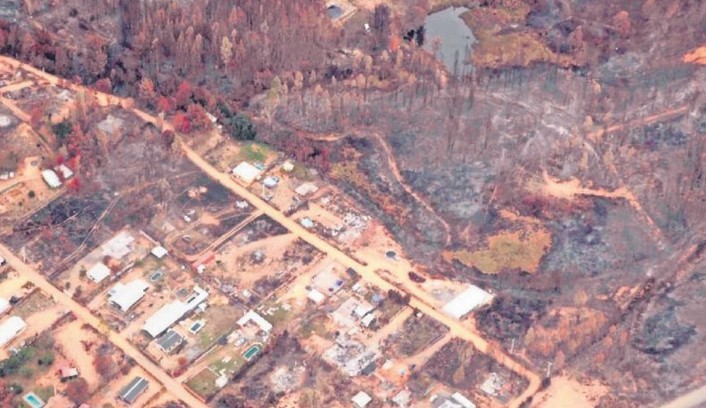- Representatives from the community, the private sector, and parliamentarians shared their views on the legislative process. They emphasized the need for better regulation, more resources to implement the law, and the inclusion of local residents.
In the last quarter of last year, the government submitted a bill to Congress aimed at regulating forest fire prevention, considering the significant impacts of the 2022-2023 season in various regions of the country. Currently, the bill is in its second administrative stage, being reviewed by the Senate's Agriculture Committee. In response, local stakeholders have outlined the key aspects they hope will be addressed in this new legislation.
Although various proposals have been introduced in recent years to address the multiple factors contributing to forest fires, most have been processed independently. According to Deputy Sergio Bobadilla (UDI), who chaired the investigative committee on the 2023 summer fires, the fact that initiatives focus on different measures prevents the development of a cohesive plan aimed at preventing such disasters.
PARLIAMENTARIANS
Deputy María Candelaria Acevedo (PC) argued that the new legislation must strengthen forest management tools, especially considering the productive reality of Biobío. She emphasized that the bill under discussion addresses updating criteria and implementing new tools.
"We cannot forget that lack of planning, or careless planning, has been one of the main culprits behind the mega-fires we have suffered. In this sense, for the prevention of urban and rural forest fires, it is necessary to update—based on scientific evidence—the criteria defining high-risk zones to adopt appropriate measures," she added.
Meanwhile, Bobadilla noted that the parliamentary investigation revealed high percentages of intentional fires. He stressed, "We will prevent this only if we have truly effective plans and programs focused on prevention. That’s what I find lacking—an emphasis on preventing fires rather than just focusing on firefighting, which, of course, is also important."
COMMUNITY AND BUSINESSES
Myriam Mellado from the Community Prevention Network, which brings together nearly 500 fire-prepared communities across six regions, commented, "The current law is narrowly focused on creating firebreaks, which helps protect certain areas, but we believe the legislation is missing key elements."
In this regard, a few weeks ago, the Network submitted a proposal to the Senate's Agriculture Committee with five points they consider crucial for fire prevention: investigating fire causes to address underlying issues; integrating prevention into early education; regulating combustible materials in various projects; valuing and leveraging the experience of communities that have managed fire risks; and regulating housing construction to enhance fire resilience.
Andrés Meneses, Public Policy Manager at Corma, stated, "A well-structured forest and rural fire law should be founded on four pillars: prevention, firefighting, prosecution, and recovery."
Emphasizing recovery, Meneses highlighted the importance of rehabilitating fire-damaged forests to prevent environmental emergencies, as the loss of vegetation cover leads to erosion, landslides, and other hazards.
Source: subscription edition ofEl Sur







Comments (0)
No comments yet. Be the first to comment!
Leave a comment